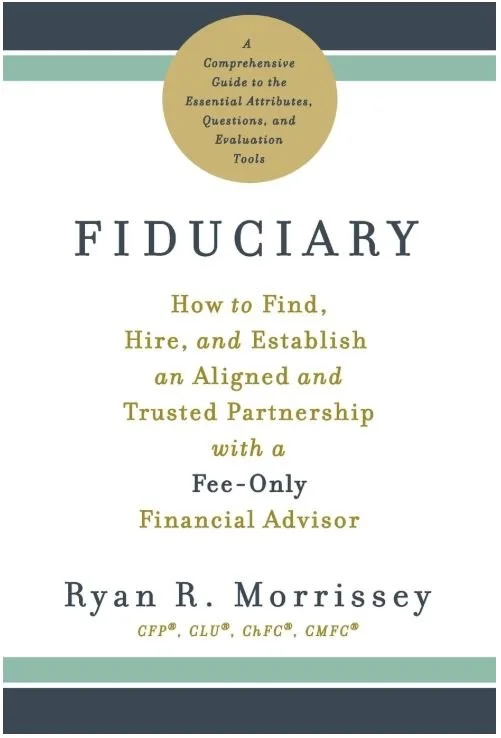Defining Your Social Network in Retirement with Craig Colvett
Retirement is often painted as the golden finish line—a reward for decades of hard work. But what happens when you cross that line? What happens when the structure, identity, and purpose that came from your job is suddenly gone?
To explore this important life transition, I sat down with Craig Colvett, a life coach who specializes in helping people move through major changes, especially the leap into retirement. Our conversation dove deep into how life coaching supports this journey, what challenges retirees face beyond the financial, and how to prepare emotionally and mentally for this next phase.
From Financial Services to Life Coaching
Craig’s journey into life coaching wasn’t linear. He spent many years in the financial services industry, but something was missing. "I recognized that I had a desire to really help people on a more basic level—as human beings,” he told me. “The pandemic amplified that. I saw even successful people struggling with anxiety and uncertainty, and I felt drawn to be part of the solution.”
This pull toward helping others led Craig to life coaching. For the past two years, he’s focused on working with people navigating big transitions—retirement being one of the most significant.
What Is Life Coaching, Anyway?
Craig explains life coaching as providing perspective—something many of us can’t access when we’re too close to our own problems. “Just like sports coaches help athletes refine their game, life coaches help you see blind spots, gain clarity, and move forward intentionally,” he says.
Importantly, a coach isn’t a guru with all the answers—they’re a partner. “I work with a coach myself. It’s about creating space to unpack subconscious thoughts and behaviors that often go unchecked,” Craig shared.
The Emotional Side of Retirement
We tend to prepare financially for retirement with spreadsheets and savings goals. But the emotional and identity shift? That’s another story.
“Unless you’re Michael Jordan, most people only retire once,” Craig quips. “You don’t know what you don’t know.” He helps clients address one of the biggest questions: Who am I without my job?
Too often, when people retire, they lead with, “I’m retired,” when asked what they do. But that just tells others what they don’t do. Craig challenges retirees to instead lead with their passions and how they spend their time now: volunteering, mentoring, golfing, caregiving—whatever brings them purpose.
Building a New Identity
If your identity for 30+ years was “I’m a [title] at [company],” then retirement can feel like losing a piece of yourself. Craig works with clients to build a new framework around their values and goals—beyond just “stay busy” or “play more golf.”
He emphasizes planning your days around things that give you purpose and connection. “It’s not just about hobbies. What gets you out of bed in the morning? What makes you feel like your life matters?”
Your Social Circle: A Predictor of Happiness
Craig and I agreed on something that’s often overlooked in retirement planning: your social network. “The biggest predictor of happiness isn’t money—it’s relationships,” he says.
And here’s the kicker—many retirees’ social networks are built around work. When that ends, it can feel like a breakup. Craig encourages people to assess their social life before retiring. Are your friends mainly coworkers? Are you cultivating friendships outside of work—through hobbies, community involvement, or neighborhood groups?
“You want to be intentional,” he says. “If everyone you socialize with is still working, you could find yourself feeling isolated quickly.”
A Different Kind of Goal-Setting
As a financial advisor, I help clients set goals like buying a second home or saving for a big vacation. But Craig takes it deeper. “Why is that goal important to you? What’s the emotional need it fulfills?” he asks.
Take the example of buying a second home. It sounds exciting, but if it means leaving behind your support system, it could lead to loneliness. Craig helps clients make sure their goals align with their values and the life they actually want—not just the one they think they should want.
Finding Fulfillment on Your Own Terms
Retirement doesn’t have to be a hard stop. In fact, many people Craig works with continue working part-time or volunteering—not because they have to, but because they want to stay engaged.
“Maybe they’re mentoring, consulting, working at Lowe’s, or helping out at a nonprofit,” Craig says. “It’s about redefining work and purpose on your terms.”
The same goes for hobbies. Playing golf every day might sound like a dream, but for many, it loses its appeal if it becomes routine. Retirement isn't about escaping—it’s about designing a life with more freedom, more purpose, and more alignment with your values.
Getting Started: Steps to Prepare for Retirement Beyond Money
So when should you start thinking about the life planning side of retirement? Sooner than you might think. Here are Craig’s key recommendations:
Start with reflection. Ask yourself what retirement means to you—not what it means to society.
Audit your social life. Where are your friendships coming from now? What will they look like post-retirement?
Explore your purpose. What makes you feel fulfilled? What roles could you see yourself playing in retirement?
Study others. Who do you admire in retirement? What do you like about how they live?
Be open to change. It’s OK to evolve. Sometimes the goal you set in your 40s may no longer serve you in your 60s.
Tools and Resources
Craig offers a retirement-focused self-assessment tool that looks at emotional readiness and mindset. It’s not about right or wrong answers—it’s about understanding what’s driving your decisions and what matters most.
If you're a financial advisor (like me) or someone approaching retirement, tools like this can be powerful complements to the financial planning process.
Final Thoughts
Retirement isn’t just about leaving a job—it’s about entering a new phase of life. One that should be just as fulfilling, if not more, than your working years. But fulfillment doesn’t happen by accident—it happens by design.
Craig Colvett helps people do just that—design a retirement that works for them. With the right mindset, a strong social foundation, and a clear sense of purpose, retirement can be more than an end—it can be a beautiful beginning.
If you have a question or topic that you’d like to have considered for a future episode/blog post, you can request it by going to www.retirewithryan.com and clicking on ask a question.
As always, have a great day, a better week, and I look forward to talking with you on the next blog post, podcast, YouTube video, or wherever we have the pleasure of connecting!
Written by Ryan Morrissey
Founder & CEO of Morrissey Wealth Management
Host of the Retire with Ryan Podcast



